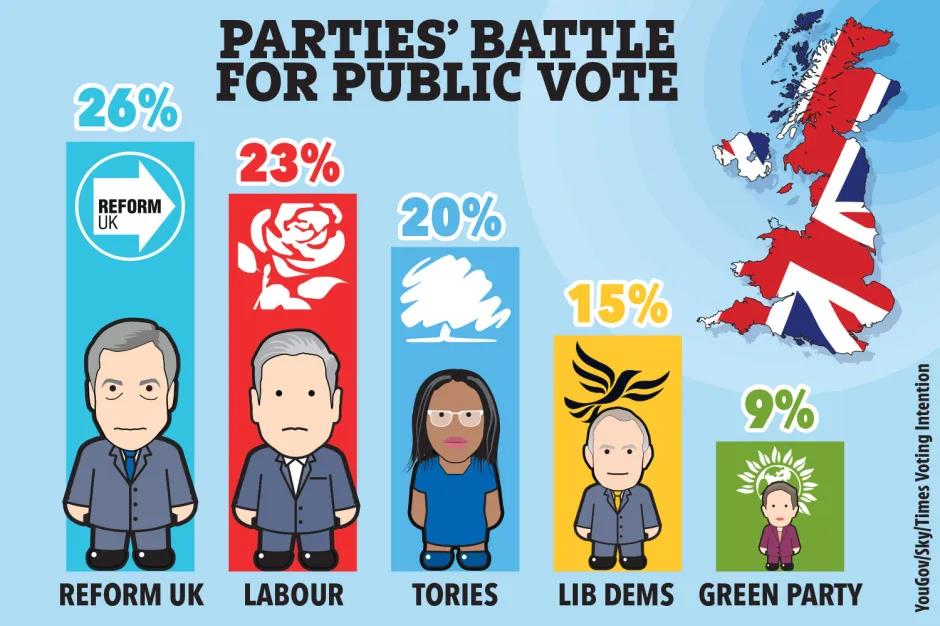
As the UK braces for Thursday's local elections, the political landscape is set for a seismic shift with potential repercussions for all major parties. The Tories face a daunting prospect of losing up to 500 councillors across England, signalling a significant challenge for Prime Minister Boris Johnson's leadership. In contrast, the Reform Party emerges as a rising force, poised to make substantial gains in local authorities, potentially reshaping the traditional political dynamics.
The wider context: Tories on the Defensive
With over 1,600 council seats up for grabs in 23 local authorities, the Tories find themselves in a vulnerable position, defending the most seats and consequently anticipating substantial losses. Political analysts project a significant decrease of 475-525 councillors from the last election cycle, posing a considerable setback for the Conservative Party. This electoral test marks a pivotal moment, indicating a potential shift in public sentiment since the 2020 general election.
Reform Party's Ascendancy and Labour's Challenge
Amidst the Tory council bloodbath, the Reform Party emerges as a formidable contender, forecasted to secure a substantial number of council seats, particularly in the Midlands and the North. Nigel Farage's party's rise poses a challenge not only to the Conservatives but also to Labour, which faces the risk of losing ground to Reform in key battlegrounds. Labour's ability to maintain its position, especially in councils like Doncaster, remains a critical test of the party's resilience in the face of evolving political dynamics.
By-election Dynamics and Leadership Struggles
The by-election in Runcorn symbolises the broader challenges faced by Labour under Sir Keir Starmer's leadership. The unexpected contest in a traditionally safe Labour seat underscores the party's vulnerabilities amidst a changing political landscape. A potential upset by the Reform Party in Runcorn could signify a broader threat to Labour's traditional support base, amplifying concerns over the party's future trajectory.

Mayoral Contests and Fragmented Politics
Mayoral battles across the UK reflect the fragmentation of political allegiances, with Reform challenging traditional party strongholds and smaller parties gaining ground. The dynamic races in Lincolnshire and the West of England underscore the shifting political dynamics, with disaffected voters turning towards alternative political voices. The rise of smaller parties like the Lib Dems and the Greens signals a growing disillusionment with the traditional two-party system, posing a significant challenge to established political norms.
In conclusion, the upcoming local elections represent a critical juncture in UK politics, with the potential for significant changes in the political landscape. As voters head to the polls, the outcomes of these elections will not only shape local governance but also have far-reaching implications for national politics, reflecting a broader shift in public sentiment and political allegiances. The results of these elections will undoubtedly set the stage for future political developments, highlighting the evolving dynamics of British politics in the post-Brexit era.






